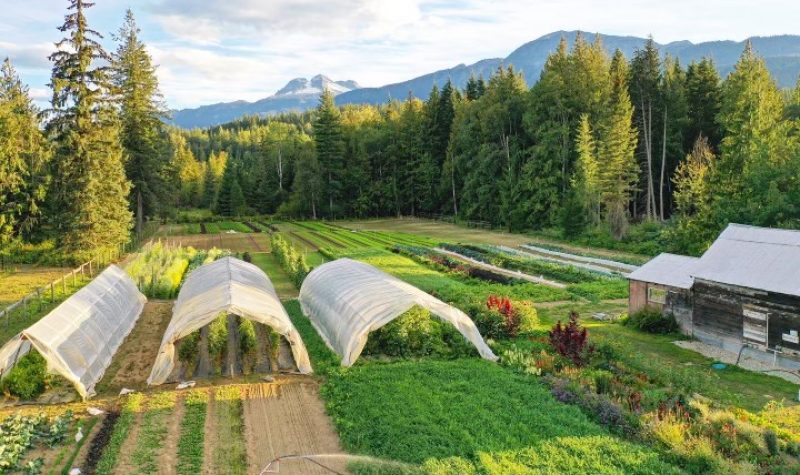First Light Farm in the Big Eddy is once again raising money to pay for food it will grow to give to the Revelstoke foodbank throughout the summer. This year their goal is to raise $10,000.
"That’s a lot of food to bring," said Jesse Johnston-Hill, one of the farm owners, "so that would take some extra work but we’re planning on it and we’ll see how much we can raise."
Johnston-Hill farms with her partner. They started the fundraiser in 2020, the year the first pandemic lockdown forced Johnston-Hill to finally commit to farming after years of wanting to. She is aware of the fact that the need for donations at the foodbank has continued to increase every year since then.
“It’s really fulfilling to drop [the vegetables] off and get so much appreciation for the food and make the tables look so much nicer and full of abundance.” She said.
In 2020, Johnston-Hill and her partner raised around $3,000 to $4,000. 2021 was the best year: they raised $8,000.
That year they were able to drop off produce two to three times a week.
“It’s nice to be able to go often,” Johnston-Hill said.
The following year, 2022, the amount they raised dropped down to $4,000. This year's campaign opened at the beginning of April, they're at just over $3,000 in donations now.
Full interview with Jesse Johnston-Hill:
Community Connections runs the foodbank. The number of people who used the foodbank tripled in the spring of 2020, the year Johnston-Hill started farming. That fall the food and outreach programs moved into the building on Second Street West. Melissa Hemphill manages the food programs, and she said they’re seeing significantly more households using the foodbank than they have in the past.
The fundraiser that First Light Farms is doing is “really quite spectacular,” Hemphill said.
That’s because it brings fresh, organic local produce to the people who use the foodbank, who otherwise might not have access to such food. It’s also supporting Johnston-Hill and her partner, young entrepreneurs getting started in the food system, Hemphill calls them.
With the cost of food going up, and the number of people using the foodbank raising, the program is being stretched in both directions.
“We’re doing everything we can always,” Hemphill says, “it’s very rarely a situation of surplus around here.”
It’s a delicate balance asking the community for donations, because the high cost of living affects everyone. But Hemphill says she knows there is also a lot of wealth in Revelstoke.
“We just hope that those who have some extra are generous and supporting the foodbank,” she said.
It’s hard to compare the use of the foodbank now to before 2020, because now it’s open three days a week and before it was only open one day a week. But Hemphill knows that before the pandemic the foodbank served about 300 households a year, and in 2022 it was 700.
Hannah Whitney, the manager of the foodbank, says that the type of people who access the foodbank has also changed—she said there is no one demographic of people who use the foodbank now.
“People who are working fulltime jobs, more families than I think there were before, everyone who’s on assisted incomes…” Whitney said.
Full interview with Melissa Hemphill and Hannah Whitney:
At her farm, Johnston-Hill is resisting the urge to measure the snow still covering the fields. The season is about two weeks behind, and she’s itching to dig in the dirt. The snow is melting faster now, and she expects they can start planting in the first week of May.
It’s better for her to get the bulk of donations early so they can plan how much to grow for the foodbank. They try to bring a variety of produce that’s in season. Bags of beets, potatoes and carrots, fresh greens, and tomatoes and peppers later in the summer.
Donations can be made here.
Click play below to listen to a radio report on this story.


